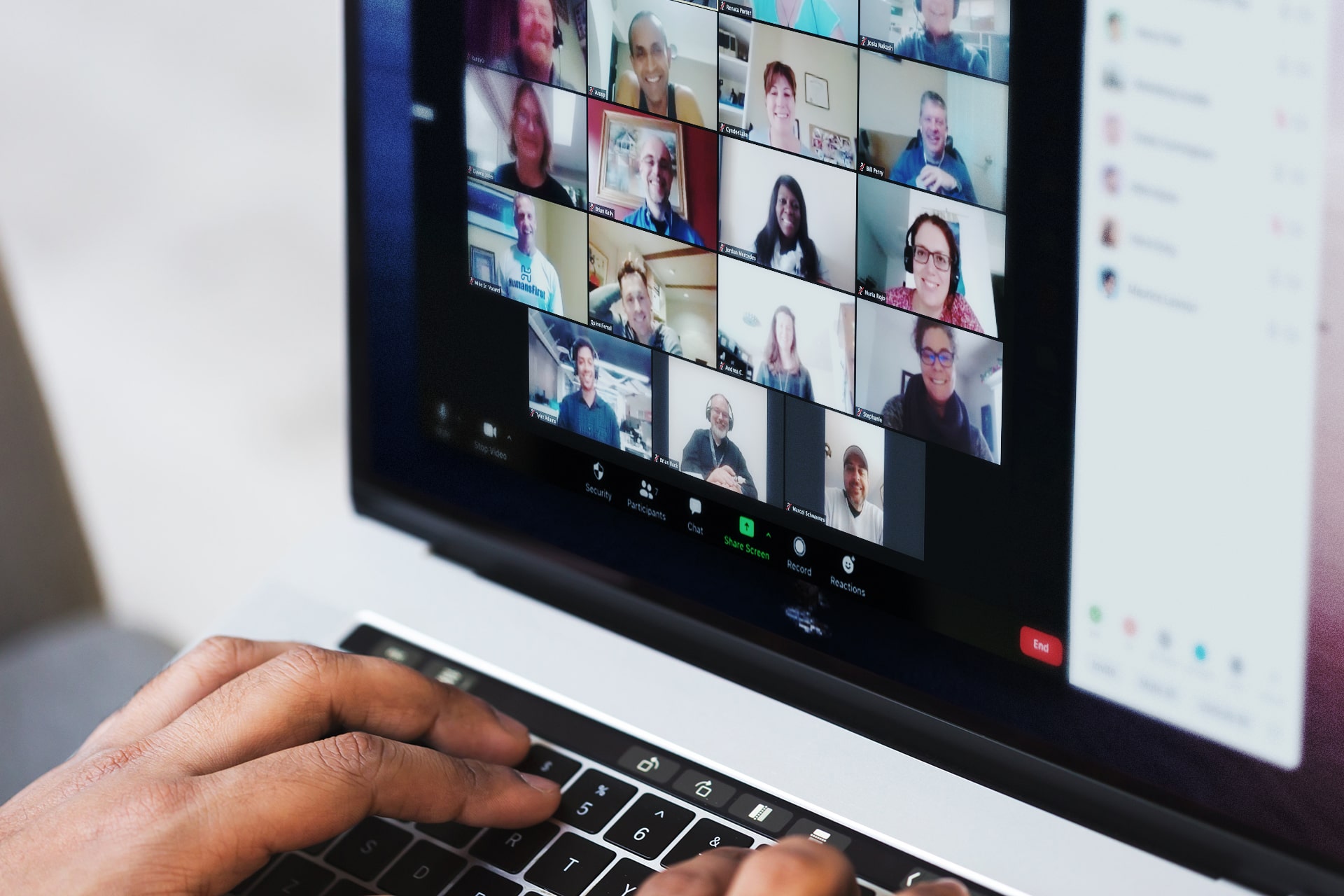
I didn’t accept the calendar invite, because I didn’t think we’d still be working remotely for the April 7th pitch practice.
Our AFRL-backed accelerator program partners with small businesses to explore customer discovery and business model creation to prepare each company for a Phase II SBIR proposal. We launched the 2020 cohort with ten participating companies on March 2… oh, what timing.
The beauty of a program like ours lies within the in-person programming. We get together every two weeks from all across the country to learn from each other, dig in on topics together, and chase after progress, driven by the excitement in the room. So when we made the difficult decision to stop meeting in person in Dayton, we were left with the question:
“Well, now what do we do?”
In order to move this program to a virtual platform meant scrapping ten weeks of preplanned programming and a carefully crafted schedule of speakers, events, and milestones. In other words, months of preparation went out the window with COVID-19.
And so we #COVIDPIVOTed.
I took our 10-week curriculum and narrowed it down to the “must have” lessons that were critical for these participating companies to fully understand and apply to their businesses. In a matter of days, we secured guest speakers who would lead webinars each week, and set up recurring zoom meetings so we could still practice our pitches on a regular basis. All via Zoom.
With Zoom in place, we could maintain a semblance of personal connection within the cohort of participants, while maintaining safety at home.
Something that has set apart winners from losers amid this crisis has been the amount of online materials a resource-provider had on hand at the start, ready to deploy when in-person service providing became no longer available. Health practices with robust telehealth systems in place could carry on without too much of a hiccup. Churches with streaming services could continue serving their congregations. Fitness apps with prerecorded workouts saw a spike in downloads. Companies who invested in online distribution of resources are, in general, still thriving comparatively.
The Entrepreneurs Center also invested in online tutorials and programming last year. Taking the step to keep up “with the times” and go digital with some of our SBIR TAP programming has turned out to be a fortuitous preparation, looking back. We have been able to roll out similar, if not identical, programming to what the T3 Accelerator offered in person, keeping all the 2020 participants on schedule with learning milestones from the comfort of their PJs and couch.
As the creator of this program and its carefully crafted schedule, I have had to personally distance myself from my expectations of what these last several weeks were supposed to look like. Instead, I’ve joined the entire world in resetting what “normal” has looked like during a global pandemic. This allowed me to take an objective look at this program, take stock of our resources available, and remake it into something that could work within limited parameters, finding and creating value where I could. All while showing grace towards myself, my work, and my participants.
While service providers like us at TEC value personal relationships with our clients that flourish when in person, we know we can’t risk health and safety. The quick actions of our team to integrate digital content, video communication tools, and redefine our expectations has allowed us to carry on delivering value through the T3 Accelerator program.
While each of us have unique stories of how this pandemic is affecting us personally and professionally, I hope you’re able to find and create value where and how you uniquely can, all while showing grace towards yourself and your work.
Sincerely,
Lauren Tiffan
Director of Strategic Programs




